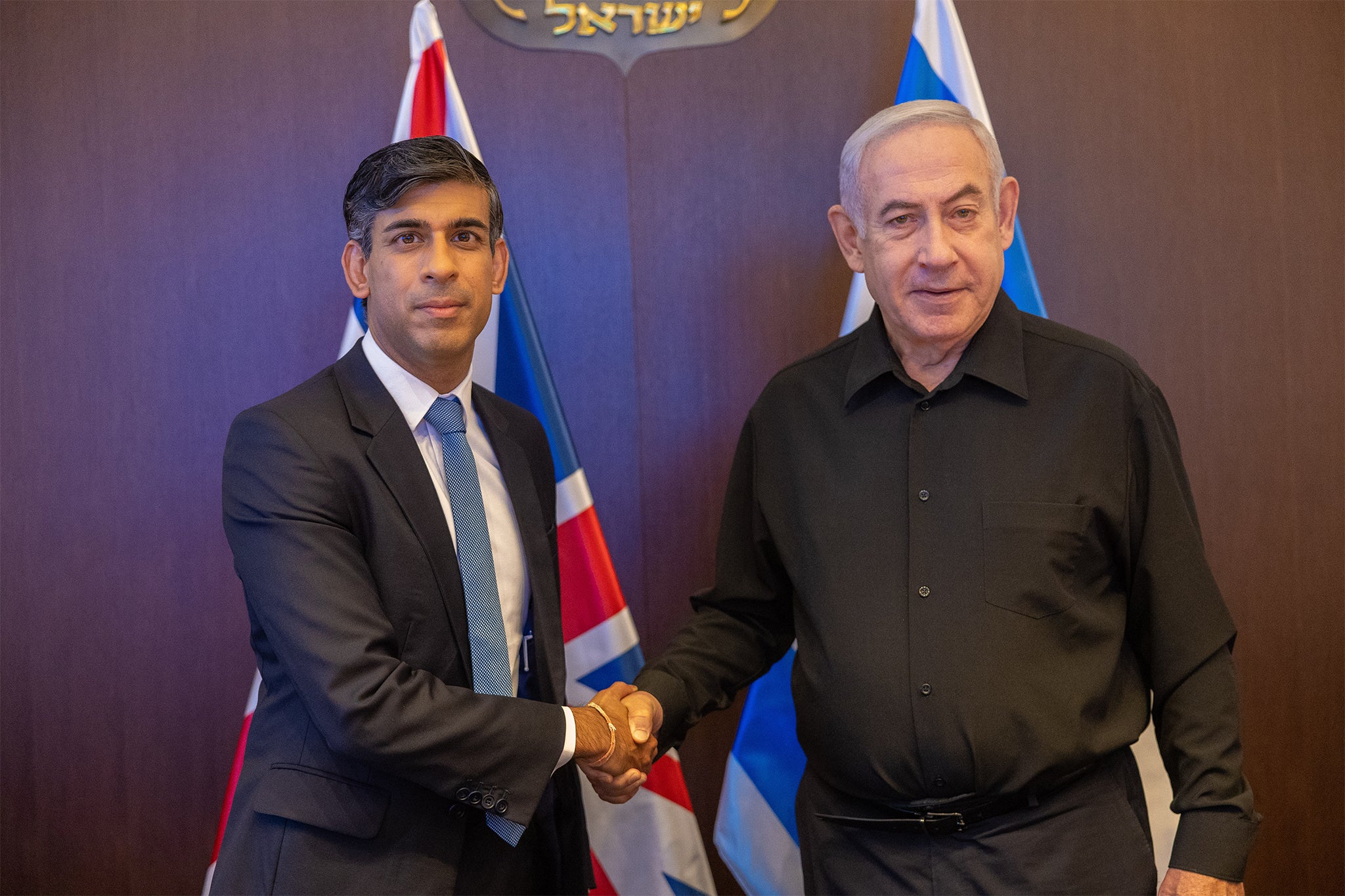How Sunak passed the Netanyahu test (for all the good it will do)
For a man not overly blessed with gravitas or natural human magnetism, the British prime minister stood on the world stage with his Israeli counterpart and turned on the compassion and personal charm. So what did he achieve, asks Tom Peck


Since the House of Commons returned on Monday, its members have retreated into the safe and easy world of grave words. What choice have they had? They’ve condemned with one breath but urged caution with the next, and looked each other squarely in the eye in the reassuring comfort of agreement. It is a formality to be gone through. Not much sound. Not much fury. Signifying not much at all.
But words aren’t always easy. Very occasionally they are almost unimaginably difficult. Words are a politician’s currency, their casino chips, and rarely in life can you find yourself more exposed, and with more on the table, than standing behind a lectern in Tel Aviv, at an unimaginable time like this, next to as wily an operator as Benjamin Netanyahu.
Rishi Sunak is not blessed with the gravitas or the natural human magnetism that is common among people in his rarefied line of work. But he has some personal charm, a compassionate manner, and also, it turns out, the fortitude not to be outmanoeuvred.
On Thursday morning, he became the third major world leader in as many days to fly to Israel, to stand beside Netanyahu, to offer warm words, to show solidarity with a kindred nation which has been victim to the most horrifying terrorist atrocity imaginable. Such things should not be hard, but easy. They normally are. But not this time.
Olaf Scholz, Joe Biden, Sunak… each of their visits were for the same two reasons. To stand shoulder to shoulder, quite literally, with Israel, but also to try and assert the need for caution in response, to a leader who was fighting for his own political survival, even before the appalling incidents of last week – and even more so now.
Biden tried to assert the need for caution on Netanyahu by speaking of 9/11; of the mistakes that were made in the aftermath, principally the invasion of Iraq. It’s been pointed out since that Netanyahu was one of the most vocal cheerleaders for that invasion, anywhere in the world, though one doubts Biden has forgotten.
All three of them, and whomever’s turn it will be next, know the risks they are taking. Those two reasons – solidarity, and caution, might seem to align easily at home, but here, they can be manipulated and pulled apart. Israel’s many enemies want to cast the procession of powerful Western leaders through Ben Gurion airport as complicity in what Israel is doing in Gaza, where thousands have died. And in so doing, the urge for caution risks further rage, further escalation.
Netanyahu wants this, too. Not escalation, but he certainly wants to take solidarity and rebadge it as international backing. Which is precisely why he stood next to Sunak and delivered the strongest words he could possibly think of. He spoke of Hamas as the “worst monsters on the planet, modern barbarians”. They were “the new Nazis”, “worse than Isis”, both lines purposefully borrowed, first from Scholz and then from Biden.
He left Sunak with no choice but to stand alongside him in assumed agreement as he said, for example: “The axis of evil, led by Iran through Hezbollah, Hamas and others, wants to return the Middle East to the Middle Ages – an era of slavery, war and violence.”
These are not words Sunak, even if he happens to believe them, would be well advised to say in public, and certainly not while bombs are being dropped in their hundreds on at least one part of that axis of evil.
But Sunak held his own. He praised Netanyahu for allowing aid into Gaza through Egypt, which will make it harder for Netanyahu to go back on that very limited commitment he made on Wednesday night. But he also said, very pointedly, that “We also recognise that the people of Palestine are victims of Hamas, too.”
Those words were crucial. In the coming days, they will almost certainly be repeated by whoever comes next, most likely Emmanuel Macron. They will have to be. Of course, difficult words are not always more valuable than easy ones. They don’t always buy you any more than cheap ones. They might not make any more difference to anything than all the easy platitudes that have filled the unforgiving hours in Westminster. But they still had to be said –and they were.
Join our commenting forum
Join thought-provoking conversations, follow other Independent readers and see their replies
Comments




Bookmark popover
Removed from bookmarks